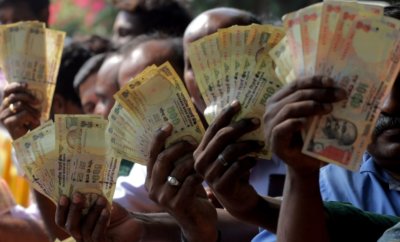Life
Most Indians Feel They Are Better Off Now Than 50 Years Ago, Many in U.S. Don’t: Report

Representational Image
Flickr
While most people in Vietnam and India say they are better off than the previous generation, countries such as the U.S. and France are split on the issue, the Pew report showed.
Almost 70 per cent Indians feel they are better off now than 50 years ago, according to a recent survey. Most citizens of 15 countries said they were doing better off than the previous generation, while a sizable percentage of residents in 23 countries, including the United States, said they were worse off, the Pew Research Center report showed.
Over 40 per cent citizens of the United States said they were worse off than the previous generation, along with those from Senegal (45%), Nigeria (54%), Kenya (53%), Ghana (47%), Brazil (49%), France (46%), Hungary (39%), Lebanon (54%) and Peru (46%).
The non-profit think tank based out of Washington D.C. asked nearly 43,000 people in 38 countries whether they felt they are doing better than the previous generation.
In Venezuela, 72 per cent people said they were worse off, closely followed by Mexico, Jordan and Argentina. Venezuela has been undergoing political unrest and economic turbulence in recent years.
As many as 88 per cent people in Vietnam said they felt better off, followed by India (69%), South Korea (68%), Japan (65%), Germany (65%), Turkey (65%), the Netherlands (64%), Sweden (64%), Poland (62%) and Spain (60%).
According to the analysis, how people are viewing the current economy of their country is a strong indicator of their response. “Some of the most positive assessments of progress over the past 50 years are found in Vietnam, India and South Korea,” the report found. “All societies that have seen dramatic economic transformations since the late 1960s, not to mention the end of armed conflict in the case of Vietnam. A majority in Turkey also share a sense of progress over the past five decades.”
The researchers observed different trends in Europe — Germans who support the Alternative for Germany party are 28 percentage points more likely to say that life is worse for people like them than those who have an unfavorable view of the anti-immigrant party. In Europe, populists tend to view the past more favorably than people who disapprove of some of the right-wing parties.
In the United States, according to a report released by the Urban Institute in June, the American middle class makes up just 26 per cent of incomes in 2014, down from 46 per cent in 1979, adjusted for inflation.The Urban Institute is a nonprofit and nonpartisan policy group. The report said upper middle class controlled 63 per cent of all income in 2014 as opposed to 30 per cent in 1979. Middle-income households in the United States are 120.8 million of the population, about as much as upper middle-class and lower-income Americans combined.



